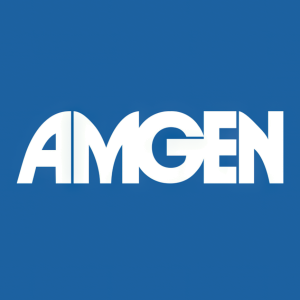TEPEZZA® (TEPROTUMUMAB) RECEIVES APPROVAL IN JAPAN FOR THE TREATMENT OF ACTIVE THYROID EYE DISEASE
Rhea-AI Summary
Amgen (NASDAQ:AMGN) announced that TEPEZZA® (teprotumumab) has been approved in Japan for the treatment of active Thyroid Eye Disease (TED) by Japan's Ministry of Health, Labour and Welfare. TED is a serious, progressive autoimmune disease affecting approximately 25,000 - 35,000 people in Japan. TEPEZZA is the first and only medicine approved in Japan to treat active TED.
The approval was based on the positive results of the OPTIC-J Phase 3 study, where 89% of patients treated with TEPEZZA showed clinically meaningful improvement in proptosis compared to 11% with placebo. TEPEZZA received orphan drug designation in Japan, allowing for a faster regulatory review. A separate trial for chronic TED patients in Japan is ongoing.
This marks TEPEZZA's first approval in Asia, offering a nonsurgical and nonsteroidal option that treats a root cause of TED. TEPEZZA is also approved in the United States, Brazil, and Saudi Arabia, and is under review in Europe, Canada, and Australia.
Positive
- TEPEZZA received approval in Japan for active Thyroid Eye Disease treatment
- First and only medicine approved in Japan for active TED
- 89% of patients showed clinically meaningful improvement in proptosis in Phase 3 trial
- Orphan drug designation in Japan allowed for faster regulatory review
- Expansion into Asian market with first approval in the region
Negative
- None.
News Market Reaction 1 Alert
On the day this news was published, AMGN declined 5.46%, reflecting a notable negative market reaction.
Data tracked by StockTitan Argus on the day of publication.
TED is a serious, progressive and potentially vision-threatening rare autoimmune disease that can cause proptosis (eye bulging), diplopia (double vision), eye pain, redness and swelling.1 There are approximately 25,000 - 35,000 people living with TED in
"This is the first approval for TEPEZZA in
TEPEZZA received orphan drug designation in
The primary endpoint in the trial was met, as
"People living with active TED can experience a significant burden of disease with symptoms that can make daily life difficult to navigate," said Yuji Hiromatsu, M.D., a professor emeritus at the Kurume University Medical Center and physician at the Diabetes, Thyroid and Endocrine Center at the Shin-Koga Hospital. "The approval of TEPEZZA in
In addition to
About Thyroid Eye Disease (TED)
TED is a serious, progressive, debilitating and potentially vision-threatening rare autoimmune disease.4 It often occurs in people living with Graves' disease, but is a distinct disease that is caused by autoantibodies activating an insulin-like growth factor-1 receptor (IGF-1R)-mediated signaling complex on cells within the retro-orbital space.5,6 This leads to a cascade of negative effects, which may cause long-term, irreversible damage, including blindness.7,8 Signs and symptoms of TED may include dry eyes and grittiness; redness, swelling and excessive tearing; eyelid retraction; proptosis; pressure and/or pain behind the eyes; and diplopia.
Important Japan Product information
PRODUCT NAME | TEPEZZA® for Intravenous Infusion 500 mg |
Generic Name (JAN) | Teprotumumab (Genetical Recombination) |
Indication | Active thyroid eye disease |
Precautions related to | Hearing disorders (e.g., deafness, hypoacusis, Eustachian tube dysfunction, patulous Eustachian tube, hyperacusis, tinnitus, and tympanic membrane disorder) may occur during treatment with TEPEZZA, and serious and irreversible events have also been reported. Patients eligible for TEPEZZA therapy should be selected based on a thorough understanding of the information provided in "17. Clinical Results," the backgrounds of the patients in the clinical studies, and the results of the studies of the efficacy and safety of TEPEZZA. Clinical studies of the efficacy and safety in patients with mild active thyroid eye disease have not been conducted. |
Dose and Administration | The usual adult dosage is 10 mg/kg as teprotumumab (genetical recombination) for the first dose and 20 mg/kg for the second and subsequent doses, administered intravenously every 3 weeks, for a total of 8 infusions. |
About TEPEZZA® (teprotumumab-trbw) in the
TEPEZZA® is indicated for the treatment of Thyroid Eye Disease regardless of Thyroid Eye Disease activity or duration.
WARNINGS AND PRECAUTIONS
Infusion Reactions: TEPEZZA may cause infusion reactions. Infusion reactions have been reported in approximately
Preexisting Inflammatory Bowel Disease: TEPEZZA may cause an exacerbation of preexisting inflammatory bowel disease (IBD). Monitor patients with IBD for flare of disease. If IBD exacerbation is suspected, consider discontinuation of TEPEZZA.
Hyperglycemia: Increased blood glucose or hyperglycemia may occur in patients treated with TEPEZZA. In clinical trials,
Hearing Impairment Including Hearing Loss: TEPEZZA may cause severe hearing impairment including hearing loss, which in some cases may be permanent. Assess patients' hearing before, during, and after treatment with TEPEZZA and consider the benefit-risk of treatment with patients.
ADVERSE REACTIONS
The most common adverse reactions (incidence ≥
Please click here for Full TEPEZZA
About Amgen
Amgen discovers, develops, manufactures and delivers innovative medicines to help millions of patients in their fight against some of the world's toughest diseases. More than 40 years ago, Amgen helped to establish the biotechnology industry and remains on the cutting-edge of innovation, using technology and human genetic data to push beyond what's known today. Amgen is advancing a broad and deep pipeline that builds on its existing portfolio of medicines to treat cancer, heart disease, osteoporosis, inflammatory diseases and rare diseases.
In 2024, Amgen was named one of the "World's Most Innovative Companies" by Fast Company and one of "America's Best Large Employers" by Forbes, among other external recognitions. Amgen is one of the 30 companies that comprise the Dow Jones Industrial Average®, and it is also part of the Nasdaq-100 Index®, which includes the largest and most innovative non-financial companies listed on the Nasdaq Stock Market based on market capitalization.
For more information, visit Amgen.com and follow Amgen on X, LinkedIn, Instagram, TikTok, YouTube and Threads.
Amgen Forward-Looking Statements
This news release contains forward-looking statements that are based on the current expectations and beliefs of Amgen. All statements, other than statements of historical fact, are statements that could be deemed forward-looking statements, including any statements on the outcome, benefits and synergies of collaborations, or potential collaborations, with any other company (including BeiGene, Ltd. or Kyowa Kirin Co., Ltd.), the performance of Otezla® (apremilast) (including anticipated Otezla sales growth and the timing of non-GAAP EPS accretion), our acquisitions of Teneobio, Inc., ChemoCentryx, Inc., or Horizon Therapeutics plc (including the prospective performance and outlook of Horizon's business, performance and opportunities, any potential strategic benefits, synergies or opportunities expected as a result of such acquisition, and any projected impacts from the Horizon acquisition on our acquisition-related expenses going forward), as well as estimates of revenues, operating margins, capital expenditures, cash, other financial metrics, expected legal, arbitration, political, regulatory or clinical results or practices, customer and prescriber patterns or practices, reimbursement activities and outcomes, effects of pandemics or other widespread health problems on our business, outcomes, progress, and other such estimates and results. Forward-looking statements involve significant risks and uncertainties, including those discussed below and more fully described in the Securities and Exchange Commission reports filed by Amgen, including our most recent annual report on Form 10-K and any subsequent periodic reports on Form 10-Q and current reports on Form 8-K. Unless otherwise noted, Amgen is providing this information as of the date of this news release and does not undertake any obligation to update any forward-looking statements contained in this document as a result of new information, future events or otherwise.
No forward-looking statement can be guaranteed and actual results may differ materially from those we project. Discovery or identification of new product candidates or development of new indications for existing products cannot be guaranteed and movement from concept to product is uncertain; consequently, there can be no guarantee that any particular product candidate or development of a new indication for an existing product will be successful and become a commercial product. Further, preclinical results do not guarantee safe and effective performance of product candidates in humans. The complexity of the human body cannot be perfectly, or sometimes, even adequately modeled by computer or cell culture systems or animal models. The length of time that it takes for us to complete clinical trials and obtain regulatory approval for product marketing has in the past varied and we expect similar variability in the future.
Even when clinical trials are successful, regulatory authorities may question the sufficiency for approval of the trial endpoints we have selected. We develop product candidates internally and through licensing collaborations, partnerships and joint ventures. Product candidates that are derived from relationships may be subject to disputes between the parties or may prove to be not as effective or as safe as we may have believed at the time of entering into such relationship. Also, we or others could identify safety, side effects or manufacturing problems with our products, including our devices, after they are on the market.
Our results may be affected by our ability to successfully market both new and existing products domestically and internationally, clinical and regulatory developments involving current and future products, sales growth of recently launched products, competition from other products including biosimilars, difficulties or delays in manufacturing our products and global economic conditions. In addition, sales of our products are affected by pricing pressure, political and public scrutiny and reimbursement policies imposed by third-party payers, including governments, private insurance plans and managed care providers and may be affected by regulatory, clinical and guideline developments and domestic and international trends toward managed care and healthcare cost containment. Furthermore, our research, testing, pricing, marketing and other operations are subject to extensive regulation by domestic and foreign government regulatory authorities. Our business may be impacted by government investigations, litigation and product liability claims. In addition, our business may be impacted by the adoption of new tax legislation or exposure to additional tax liabilities. If we fail to meet the compliance obligations in the corporate integrity agreement between us and the
CONTACT: Amgen, Thousand Oaks
Madison Howard, 773-636-4910 (media)
Elissa Snook, 609-251-1407 (media)
Justin Claeys, 805-313-9775 (investors)
References
- Smith TJ, Kahaly GJ, Ezra DG, et al. Teprotumumab for thyroid-associated ophthalmopathy. N Engl J Med. 2017;376(18):1748-1761.
- Natsuko W et al. J Endocr Soc. 2023 Nov 27;8(1):bvad148.
- Yuji Hiromatsu, et al. "Efficacy and Safety of Teprotumumab in Japanese Patients with Active Thyroid Eye Disease." The 66th Annual Meeting of the Japan Thyroid Association, December 9, 2023. Abstract No.O13-5.
- Barrio-Barrio J, et al. Graves' Ophthalmopathy: VISA versus EUGOGO Classification, Assessment, and Management. Journal of Ophthalmopathy. 2015;2015:249125.
- Weightman DR, et al. Autoantibodies to IGF-1 Binding Sites in Thyroid Associated Ophthalmopathy. Autoimmunity. 1993;16(4):251–257.
- Pritchard J, et al. Immunoglobulin Activation of T Cell Chemoattractant Expression in Fibroblasts from Patients with Graves' Disease Is Mediated Through the Insulin-Like Growth Factor 1 Receptor Pathway. J Immunol. 2003;170:6348-6354.
- McKeag D, et al. Clinical features of dysthyroid optic neuropathy: a European Group on Graves' Orbitopathy (EUGOGO) survey. Br J Ophthalmol. 2007;91:455-458.
- Bartalena L, Kahaly GJ, Baldeschi L, et al. The 2021 European Group on Graves' Orbitopathy (EUGOGO) Clinical Practice Guidelines for the Medical Management of Graves' Orbitopathy. Eur J Endocrinol. 2021.
![]() View original content to download multimedia:https://www.prnewswire.com/news-releases/tepezza-teprotumumab-receives-approval-in-japan-for-the-treatment-of-active-thyroid-eye-disease-302257503.html
View original content to download multimedia:https://www.prnewswire.com/news-releases/tepezza-teprotumumab-receives-approval-in-japan-for-the-treatment-of-active-thyroid-eye-disease-302257503.html
SOURCE Amgen









